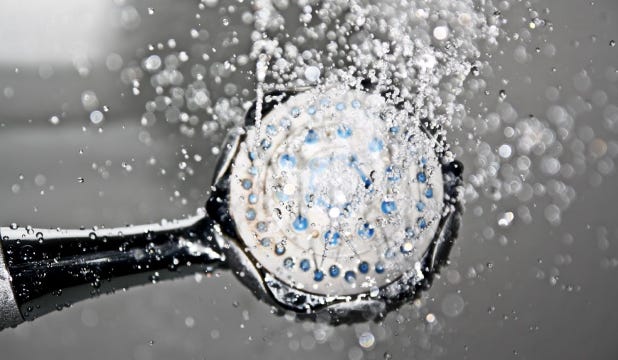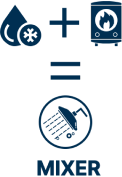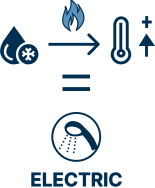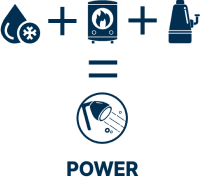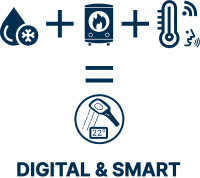Intro
With 49% of Brits showering daily, the shower has quickly become an integral feature of our bathrooms. In fact, over 95% of UK city folk prefer showers to baths; our predilection for showers is seemingly an intrinsic one, borne from our ancient ancestors who, with no other sources of powerful water, would stand under waterfalls to clean themselves.

Now, our showering process looks a little different and we’re spoilt for choice when it comes to what new shower to buy. There are four main types available:
- Mixer Shower
- Electric Shower
- Power Shower
- Digital & Smart Shower
First, you’ve got to consider some key components, some regarding technical semantics and others focusing more on how the aesthetics of your new shower will complement your current bathroom set-up:
- What’s your water pressure like? If your water pressure is low, there are ways to boost it if you’re after a power shower, such as installing a shower pump. If you’re using mains pressure, you’re less likely to have an issue with your water pressure.
- What size boiler tank have you got? If you’ve got a boiler on the smaller side and you’re concerned about your water running out, avoiding mixer showers and opting for an electric shower can help to address these doubts.
- What type of boiler do you have? If you have a combi boiler or an unvented system, hot water will be produced directly from the mains supply, meaning it will work with either an electric, digital or mixer. A more traditional gravity-fed system (AKA conventional) is compatible with any of the four shower types.

Mixer Showers
Electric Showers
Power Showers
Digital & Smart Showers
Ultimately, picking out your perfect shower is primarily down to personal preference and lifestyle, though in some cases you’ll have to consider what your water pressure is like or what kind of boiler you have. Of course, if you’re not sure what shower type to invest in, it’ll be worth consulting a plumber just to be certain. You can also feel free to contact us regarding your bathroom enquiries through the Builder Depot Showroom Page, where our specialised staff will be happy to help.
After a completely transformed bathroom space and not just a new shower? We've got you. Our comprehensive Bathroom Renovation Guide will expertly navigate you through the trials and tribulations of revamping your bathroom, guaranteeing a smooth and gratifying experience from start to finish.

